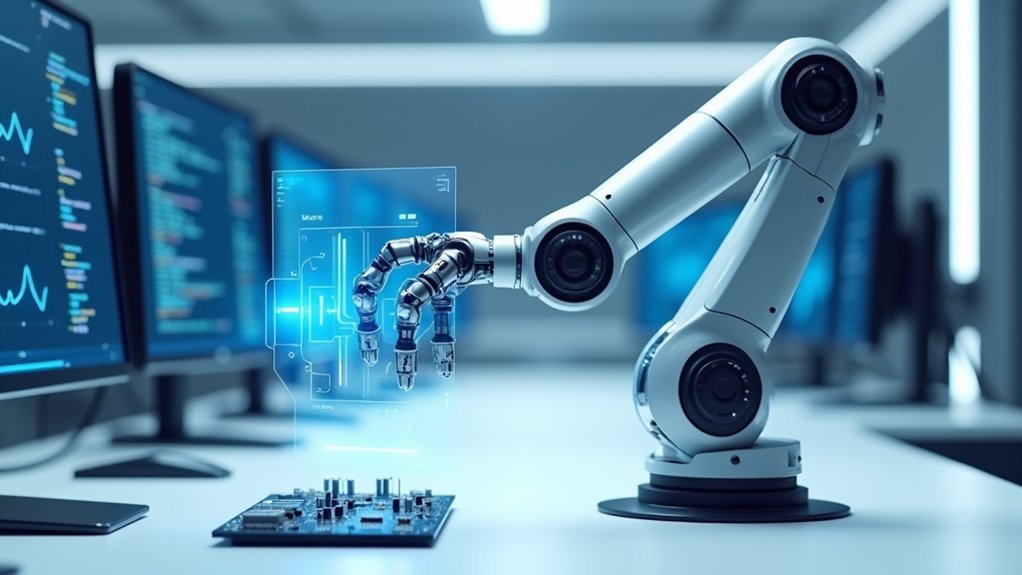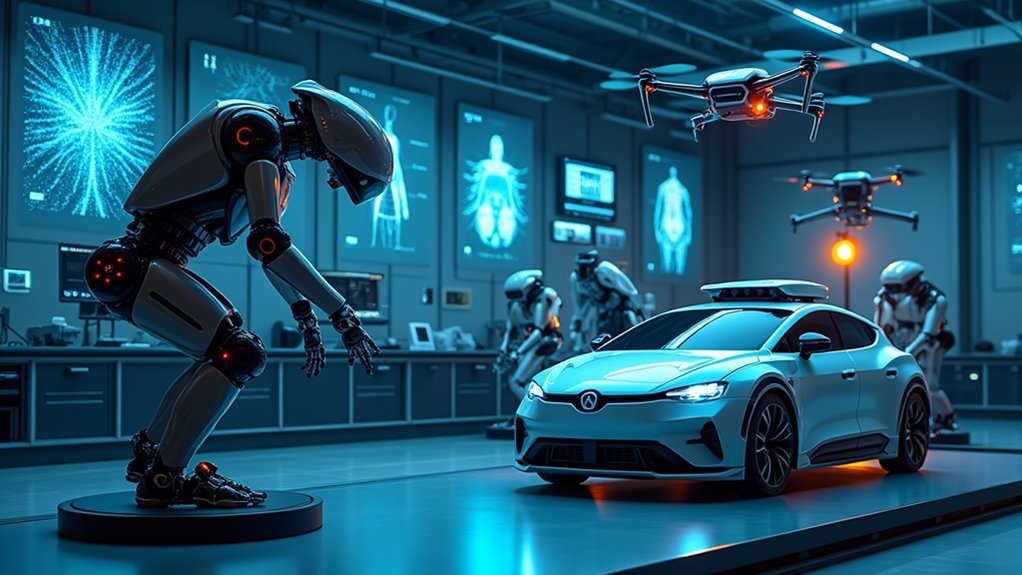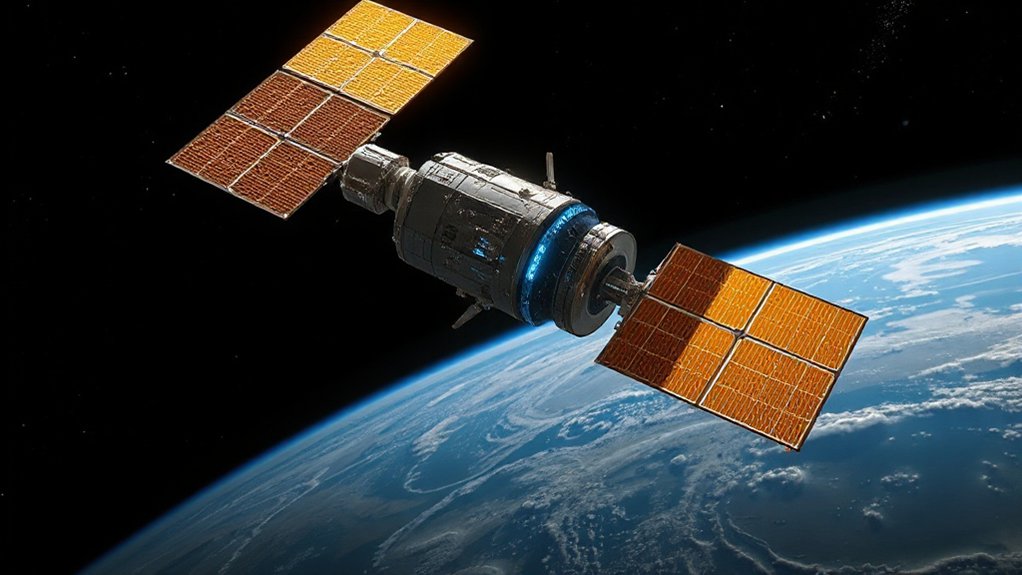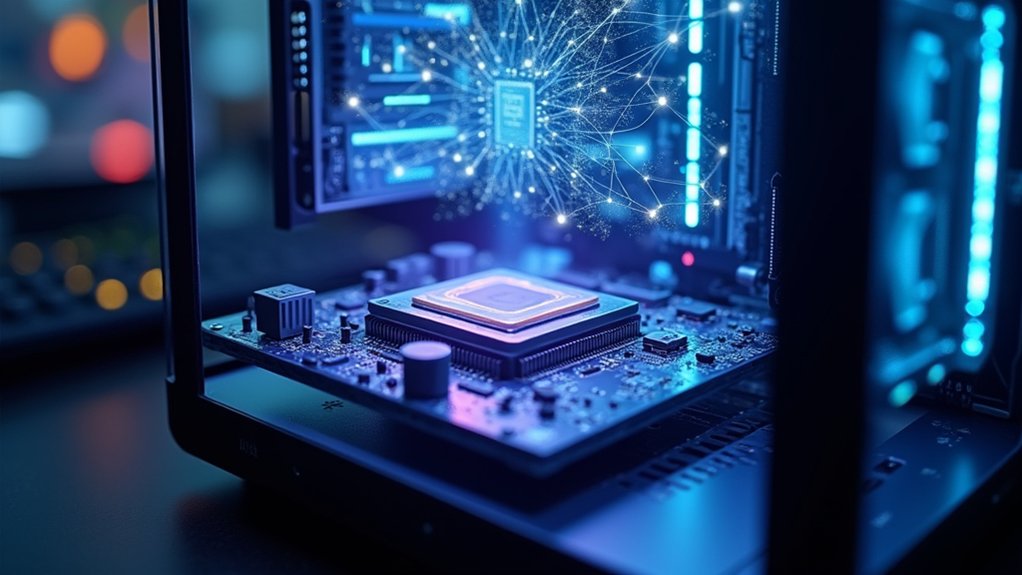AI-powered technology is transforming daily life through various applications. Virtual assistants respond to voice commands on phones, while computer vision helps self-driving cars navigate roads. In business, AI predicts trends and prevents fraud. Healthcare benefits from faster drug discovery and improved diagnostics. AI even fights climate change by optimizing energy use and monitoring environmental changes. These smart systems continue to evolve, offering solutions to complex challenges across industries.
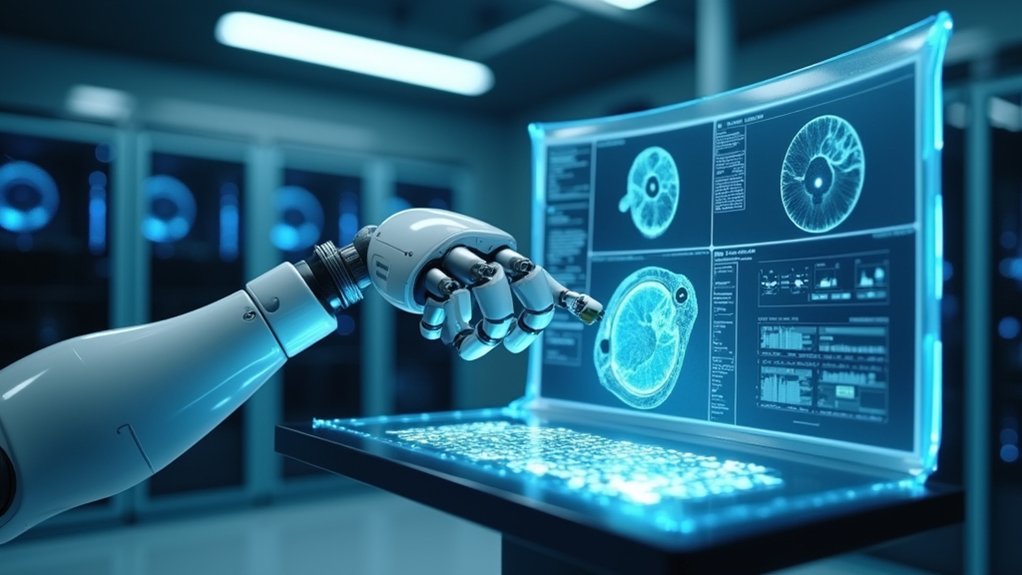
As AI-powered technology continues to transform industries worldwide, its impact is becoming increasingly visible in everyday life. From the virtual assistants on our phones to the recommendations we see while shopping online, AI systems are working behind the scenes. These technologies use natural language processing to understand and generate human speech, making interactions with machines more intuitive than ever before.
One of the most visible applications of AI is computer vision, which lets machines interpret visual information. This technology powers facial recognition systems and helps self-driving cars navigate roads safely. In factories, AI-equipped cameras inspect products for defects much faster than human workers can. Doctors also use AI to analyze medical images and detect diseases earlier.
Computer vision transforms how machines see our world, enabling everything from safer roads to faster medical diagnoses.
AI's ability to predict future trends based on past data is changing how businesses operate. Companies use these predictive tools to forecast sales, optimize inventory, and personalize recommendations for customers. Banks employ AI to spot unusual transactions that might indicate fraud, protecting consumers from financial theft. AI tools significantly enhance content creation by automating mundane tasks, allowing professionals to focus more on creative aspects of their work.
Robots equipped with AI are transforming manufacturing and logistics. These machines can adapt to new tasks and work alongside humans safely. In healthcare, AI-powered robots assist with surgeries and help people with disabilities through advanced prosthetics and assistive devices.
The healthcare industry is benefiting greatly from AI innovations. Researchers use AI to speed up drug discovery by simulating how molecules interact. Hospitals use AI systems to monitor patients and alert staff to potential problems before they become serious. These tools also help doctors create personalized treatment plans based on a patient's unique health profile. The systems continually improve their accuracy through self-correction algorithms that learn from new medical data. AI is revolutionizing diagnostic capabilities with advanced imaging analysis that can detect diseases earlier than traditional methods.
In the fight against climate change, AI is becoming an essential tool. It analyzes satellite images to track environmental changes and predicts extreme weather events. Farmers use AI-guided systems for precision agriculture, reducing waste and increasing crop yields. Smart buildings use AI to optimize energy usage, cutting costs and reducing carbon emissions.
Frequently Asked Questions
What Are the Ethical Concerns Surrounding Ai-Powered Surveillance Systems?
AI-powered surveillance systems raise several ethical concerns.
Privacy issues include mass data collection without people's consent and risks of data breaches.
These systems may show bias, with higher error rates for minority groups. They can create a "chilling effect," making people self-censor their actions and speech.
There's also limited accountability, as AI decision-making is often hard to audit and regulations aren't keeping pace with technology.
How Is AI Affecting Traditional Job Markets?
AI is causing major changes in job markets worldwide. Reports show it could eliminate 300 million jobs by 2030, with 14% of workers needing new careers.
Manufacturing faces 2 million jobs at risk by 2025. However, AI is also creating opportunities, with 97 million new jobs expected by 2025.
Workers in retail face higher risks, while healthcare sees AI enhancing rather than replacing jobs.
Who Owns Data Generated by Ai-Powered Consumer Devices?
Ownership of data from AI consumer devices varies widely. Currently, companies often claim ownership through terms of service agreements.
However, regulations like GDPR give users certain rights to their personal data.
Multiple models exist: central ownership (company owns all), distributed ownership (users retain rights), and hybrid models (shared ownership).
The legal landscape is still evolving, with many countries developing new laws to address these complex issues.
When Will AI Reach Human-Level General Intelligence?
Experts disagree on when AI will reach human-level intelligence. Leading tech figures predict it could happen between 2027 and 2029.
Sam Altman of OpenAI suggests 2027-2028, while Google DeepMind's Shane Legg sees a 50% chance by 2028. Recent AI systems are showing impressive results on complex tests.
However, many challenges remain, including ethical concerns and the need for better regulations as these systems become more powerful.
Can AI Creativity Be Considered Original or Authentic?
AI creativity exists in a gray area between originality and derivation. While AI systems generate unique works, they're built on human-created data.
Experts debate whether this constitutes authentic creativity since AI lacks intention and emotional understanding. Some argue AI art is a new form of creative expression, while others maintain it's merely sophisticated pattern recognition.
Legal systems continue to wrestle with questions of authorship and ownership.
